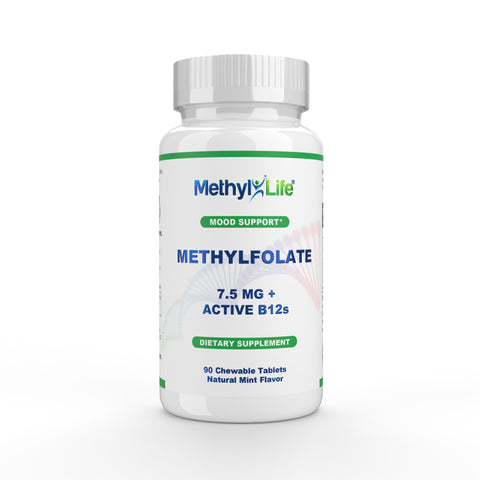MTHFR and Pregnancy Success
Recent research has shown that an MTHFR mutation may increase the risk of complications during pregnancy. It’s also been suggested that MTHFR may explain why some women have recurrent miscarriages.
While more research is pending, this information will no doubt have many women with MTHFR wondering if they can have a successful pregnancy.
The MTHFR gene codes the enzyme required for metabolizing folate. While most people with MTHFR can obtain enough folate from their diet to make up for this impaired metabolism, the body’s needs for folate are much greater during pregnancy. As a result, women with an MTHFR polymorphism may be at a higher risk of complications or birth defects due to lack of folate.
Folate is crucial for proper DNA synthesis and repair, control of gene expression, and many other biological processes of fundamental importance for cell division and embryo development.
Impaired folate metabolism can also lead to elevated levels of homocysteine, which has been linked to recurrent miscarriage1. It’s for this reason that women who have had multiple miscarriages are often advised to undergo testing for folate levels or hyperhomocysteinemia.
The good news is that yes, it is possible to have a successful pregnancy with an MTHFR mutation. It’s just a matter of taking the right nutrients.
This article will explain the risks associated with different MTHFR variants during pregnancy, how these risks can be minimized, and the most effective folate supplements that pregnant mothers can take.















